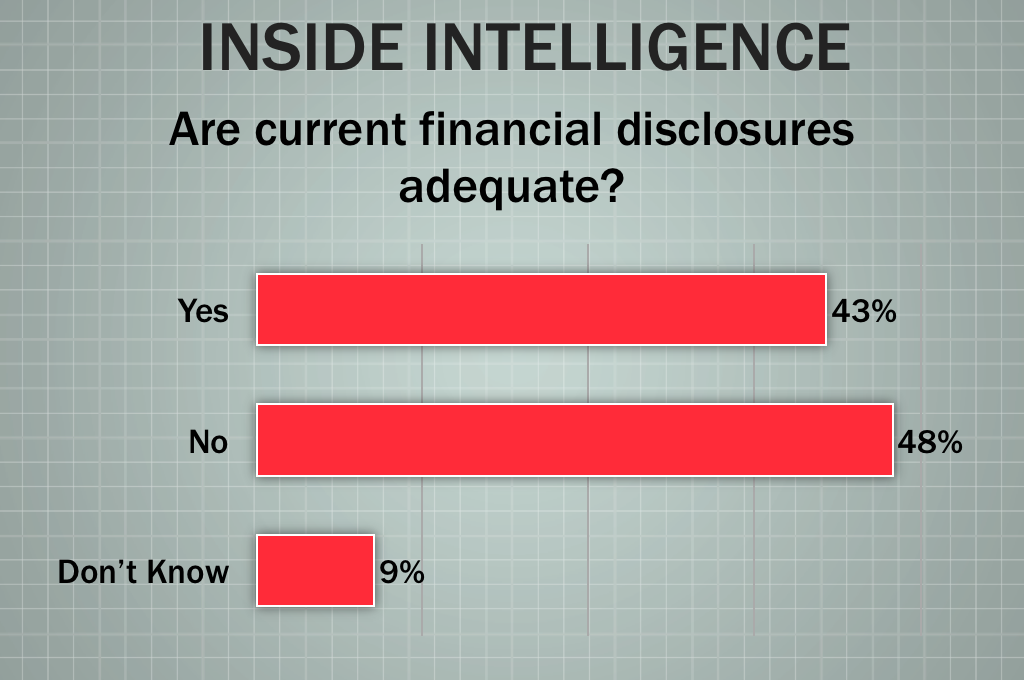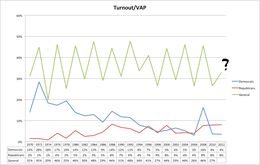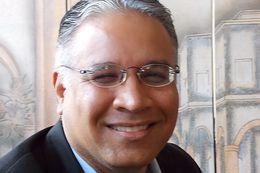We turned (a little) away from the elections this week and to the business of actually governing the state, asking the insiders about how the Senate will run now that voters have made most of their decisions there and about whether and how lawmakers ought to disclose information about their personal finances.
A majority of the insiders think the changes wrought by the elections will change the way the Senate does its business. There are five new members already — all Republicans — and at least one real race for an incumbent Democrat still ahead in November. And the gentleman presiding over it all, Lt. Gov. David Dewhurst, is just back from getting walloped in the GOP primary for the U.S. Senate. The insiders see change ahead.
They don't expect changes to a key rule — the one that requires two-thirds of the senators to agree before something can come up for a vote. That so-called two-thirds rule allows a minority in the Senate to block legislation (most of the time). And most of the insiders think it's a good deal; 89 percent say the Senate should keep it in place.
Seven of ten insiders think lawmakers ought to disclose information about their income and investments, and 43 percent say the current disclosures required by law are disclosure enough. Another 48 percent say current disclosures aren't adequate.
We collected verbatim comments along the way and have attached the full set. A sampling of those, along with the full results to the poll questions, follows.

.
With David Dewhurst returning for another session as lieutenant governor and with a handful of new Republican members, do you expect the Senate to operate as it has in the past?
• "As long as the 2/3rds rule is in effect, the Senate will operate as it has for decades. Dan Patrick et al. need someone in addition to Wendy Davis to lose."
• "Even though there will be a number of new senators this session, it would be surprising to see the Senate altering the rules to such an extent that it changes the way it does business. However, there may be more contentious issues to be taken up, and if Gov. Dewhurst has aspirations of running again for this or another office, he may feel compelled to assist those who tried to paint him as a moderate."
• "I foresee a serious challenge to the Senate's rules that will fail. The tradeoff will be vastly different committee assignments and more social issues coming to the floor."
• "Dewhurst stays tuned to the weather channel. So in some ways that is the way he has always operated."
• "The Senate has just about had it with Dewhurst - expect a renewed sense of displeasure. The recent excitement with the prospect of his departure and the chain of events that would have triggered can only now be matched with the enthusiasm by which the remaining bit of hot air pouring from his campaign balloon provides." • "But with the usual right of the Lt. Governor to move items along due to TEA party pressure"
• "Your question assumes that Dewhurst will return this session as Lt. Governor. In the event that he does, which is not assured, you could very well see the establishment of a Senate Majority Leader."
• "Depends on Wendy Davis being reelected and if the two thirds rule survives"
• "There is simply no way the Senate can operate as it has. Dewhurst, like Straus, does not know how to control the floor and has few lieutenants on which to rely for help when things get sticky."
• "Losing = weakness = change"
• "There will be increased pressure to run the Senate on a partisan basis."

.
Should the Senate keep its 2/3rds rule?
• "Absolutely. This is the only guaranteed moderating factor. Witness voter id results from last session when senate went to committee of the whole."
• "The State of Texas, the Texas Senate and its traditions are much bigger than the tea party or any other movement. The Senate should not pass knee-jerk legislation, like the House. This rule is designed for cooler heads to prevail and for problems to be solved. No one wants legislation shoved down their pie hole. The pendulum will swing the other way soon, so be careful what you wish for..."
• "It's the only thing protecting the smart people from bad votes."
• "Kills more bad ideas than good ones."
• "It's not remotely democratic, with a small "d.""
• "They only keep the rule when they feel like it anyway. What's the point of pretending?"
• "By putting every Senator on the "calendar committee," it makes each one relevant on each issue. That is a tradition on which they should not want to turn their backs."

.
Should politicians disclose their incomes, investments and other personal finance information?
• "We've operated this long without knowing of conflicts of interest and personal stakes, so why change it?"
• "Yes, but we shouldn't be shocked that someone can serve for $7200 a year but still build wealth while serving."
• "We are long past due for an ethics scandal."
• "Given the fact that in recent years members have done everything from pimp red light cameras in exchange for a Mercedes (Paging Linda Harper Brown) to pass bills to protect their beach homes (Exit stage right, Mr. Christian), a little transparency might not be such a bad thing."
• "As long as they remain a part-time legislature NO"
• "But this does not meant that members of the Legislature should disclose their personal income tax returns. Unlike members of Congress, legislators cannot amend the Internal Revenue Code to make or break tax exemptions that benefit them personally. If you want to know whether a legislator is using tax law to their benefit, ask them for their business's franchise tax and sales tax returns."
• "A person's income is his/her private business."
• "Enough is enough. Since when did running for office require the electoral equivalent of a colonoscopy? Disclosure ad nauseum will further deter otherwise good people from serving the public."
• "Too much profiteering is resulting from legislative decisions. That should be exposed."
• "They should also have to pass the standardized tests given to school kids and file conflict of interest forms on legislation affecting themselves, business associates, or family members."

.
Are current laws and forms for those disclosures adequate?
• "If you want privacy, don't run for an office that controls billions in state funds and regulates entire industries. Stop whining and start disclosing."
• "Ethics commission needs to be funded adequately to upgrade technology and software. Not doing so thwarts its function.... funny given that the legislators who have to disclose the required information are also the ones who set the budget and funding for Ethics Commission...."
• "Generally yes, although the financial categories of disclosure could be made more meaningful."
• "The only holes in the Ethics laws are that lawyers representing clients interest on the floor of the legislature don't have to reveal clients names, and judges have not restrictions on entertainment, travel, etc."
• "Some "fine-tuning" would likely be in order. With all due respect for my friends at the Tribune, I don't see the need for disclosure of tax returns. Public life is difficult enough."
• "Is this question intended to be funny?"
Our thanks to this week's participants: Cathie Adams, Jenny Aghamalian, Clyde Alexander, George Allen, Jay Arnold, Tom Banning, Walt Baum, Dave Beckwith, Rebecca Bernhardt, Andrew Biar, Allen Blakemore, Tom Blanton, Jeff Bonham, Hugh Brady, Steve Bresnen, Chris Britton, Blaine Bull, Kerry Cammack, Marc Campos, Thure Cannon, Snapper Carr, Janis Carter, Tris Castaneda, Corbin Casteel, Elizabeth Christian, Elna Christopher, Rick Cofer, Lawrence Collins, John Colyandro, Harold Cook, Randy Cubriel, Denise Davis, Hector De Leon, Tom Duffy, David Dunn, Richard Dyer, Jeff Eller, Jack Erskine, John Esparza, Terry Frakes, Wil Galloway, Norman Garza, Dominic Giarratani, Bruce Gibson, Scott Gilmore, Eric Glenn, Michael Grimes, Anthony Haley, Wayne Hamilton, Bill Hammond, Adam Haynes, Ken Hodges, Shanna Igo, Deborah Ingersoll, Richie Jackson, Mark Jones, Lisa Kaufman, Robert Kepple, Richard Khouri, Tom Kleinworth, Ramey Ko, Tim Lambert, Pete Laney, James LeBas, Donald Lee, Luke Legate, Myra Leo, Ruben Longoria, Homero Lucero, Vilma Luna, Matt Mackowiak, Bryan Mayes, Dan McClung, Parker McCollough, Scott McCown, Robert Miller, Lynn Moak, Bee Moorhead, Steve Murdock, Craig Murphy, Keats Norfleet, Pat Nugent, Sylvia Nugent, Gardner Pate, Tom Phillips, Wayne Pierce, Kraege Polan, Jay Pritchard, Jay Propes, Tim Reeves, Jeff Rotkoff, Jason Sabo, Mark Sanders, Andy Sansom, Jim Sartwelle, Stan Schlueter, Steve Scurlock, Bradford Shields, Christopher Shields, Dee Simpson, Ed Small, Larry Soward, Dennis Speight, Tom Spilman, Jason Stanford, Bob Strauser, Colin Strother, Charles Stuart, Michael Quinn Sullivan, Sherry Sylvester, Jay Thompson, Russ Tidwell, Trent Townsend, Trey Trainor, Ware Wendell, Ken Whalen, Darren Whitehurst, Michael Wilt, Seth Winick, Peck Young, Angelo Zottarelli.














